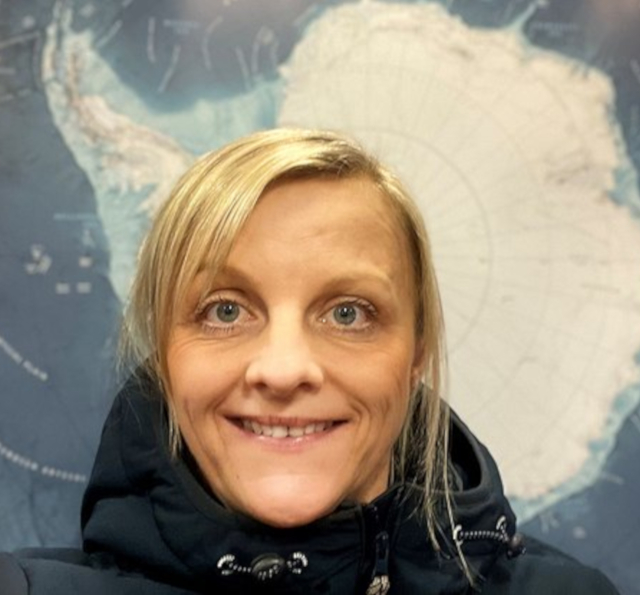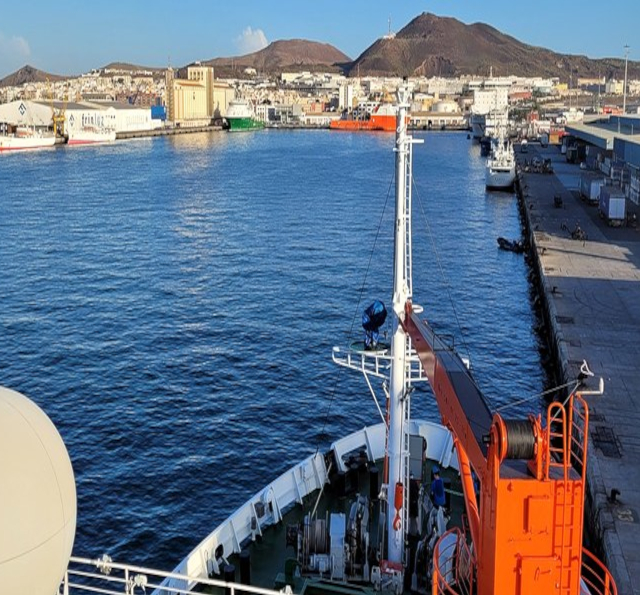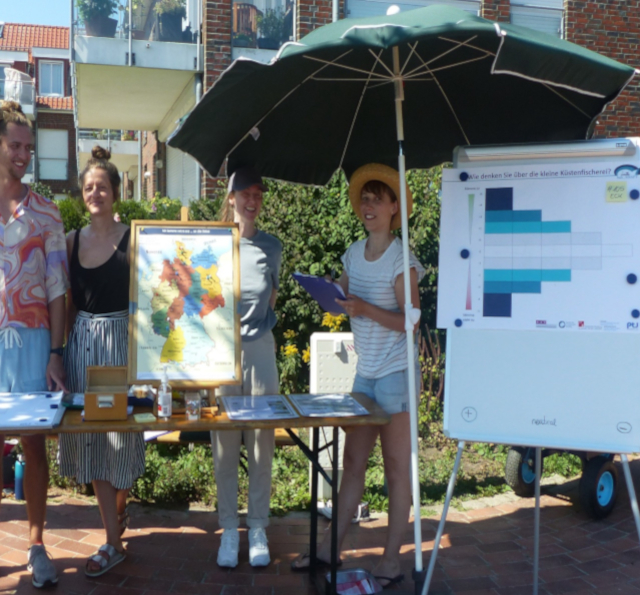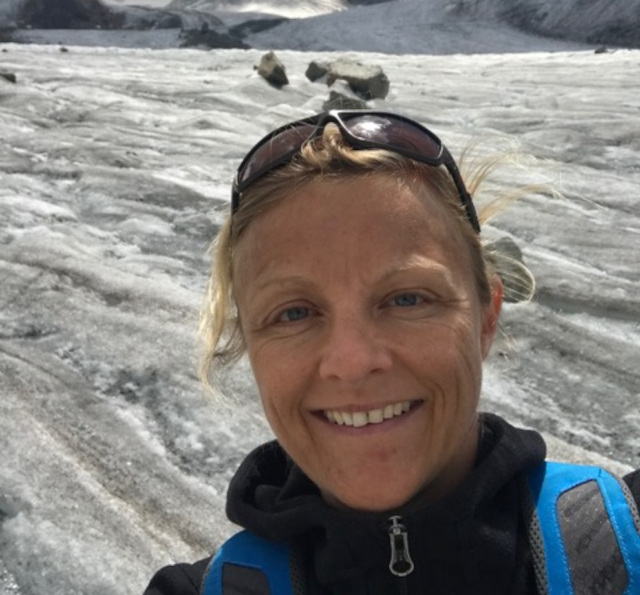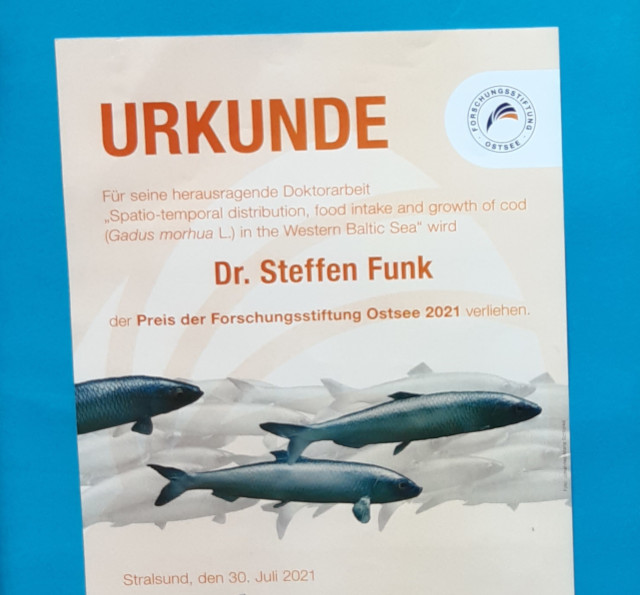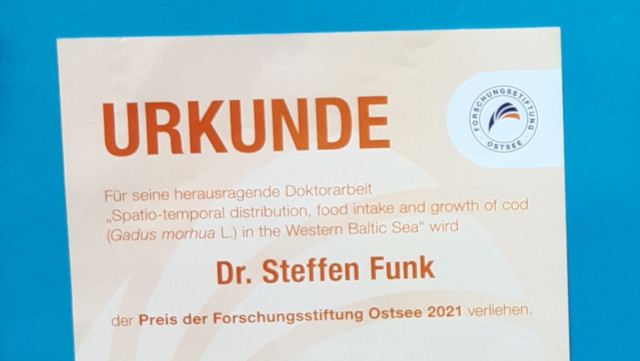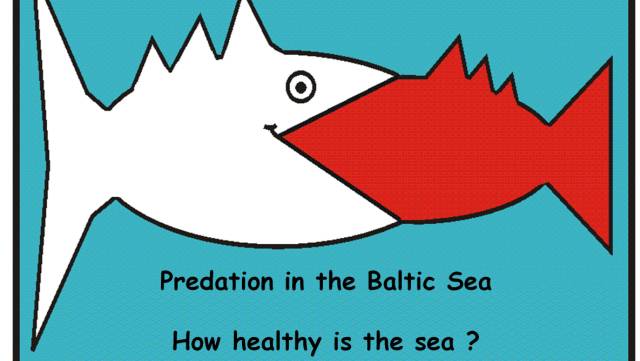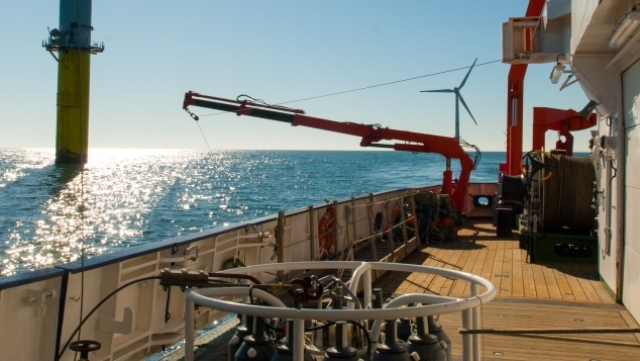Baltic Sea Research Foundation Award 2021
PhD thesis in cooperation between University of Hamburg and Thünen Institute of Baltic Sea Fisheries wins prize of Baltic Sea Research Foundation 2021
On August 10, 2021, the dissertation of Dr. Steffen Funk from the Institute of Marine Ecosystem and Fishery Sciences was awarded the prize of the Baltic Sea Research Foundation. Unfortunately, a public award ceremony had to be omitted this year due to the pandemic.
In his work, which was the result of a cooperation between the University of Hamburg and the Thünen Institute of Baltic Sea Fisheries, junior scientist Dr. Steffen Funk took a closer look at the spatial distribution of cod in the western Baltic Sea, their diet and growth. To this end, a transdisciplinary approach used the ecological knowledge of local set net fishermen from Schleswig-Holstein to reveal seasonal distribution patterns of cod in the western Baltic Sea as well as their seasonal habitat preferences. It was shown that cod in the Western Baltic actually occur in shallow areas for most of the year and specifically prefer structured habitats such as vegetated hard substrates, rocky reef structures, mussel fields and seagrass beds. Furthermore, the paper discussed whether traditional scientific sampling (often limited to deeper areas) provides inadequate coverage of the stock's main distribution areas and thus may provide limited insight into cod ecology and stock dynamics.
The previous, often insufficient coverage of the distribution areas of cod in the western Baltic Sea in scientific sampling also provided the starting point for a new study on the feeding ecology of cod in the western Baltic Sea, conducted as part of Dr. Funk's PhD thesis. The use of different fishing gears (trawls, gillnets and handlines) as well as sample sources (scientific surveys and sampling from commercial fisheries and fishing boats) ensured a high-resolution, spatial and temporal coverage of the distribution area of the cod in the western Baltic Sea. The highest stomach contents were observed in the phases of intensive shallow water use in spring and autumn, which strongly indicated the special importance of shallow water habitats as feeding areas for cod. Furthermore, it could be revealed that the food (also of large individuals > 60 cm length) in areas shallower than 15 m depth is dominated by benthic invertebrates. Especially the shore crab (Carcinus maenas) could be identified as one of the main prey organisms. The previous picture of the Western Baltic cod as a predominantly piscivorous (fish-preferring) predator must therefore be corrected. Overall, Dr. Funk's new study of cod food consumption in the western Baltic impressively demonstrates the importance of covering as much of a target species' range as possible in food ecology studies in order to (1) better understand the role of a studied species in the food web and thus in the ecosystem of the study area, and (2) obtain a more complete picture of its consumption and energy intake. The in turn can help better understand observed patterns in growth rates and conditions.
In the third part of the thesis, the newly gained knowledge about the spatio-temporal distribution of cod in the Western Baltic Sea as well as about the found depth-specific patterns in their food intake were used to investigate the growth of cod in this region in more detail. For this purpose, an individual-based bioenergetics model was developed. The modeling performed indicated that the shallow water phases in spring and fall, in particular, are especially important growth phases for cod. Furthermore, the modeled growth of the cod showed clear signs of stagnation or starvation phases, which occurred in connection with pronounced midsummer periods and associated exposure of the cod to high water temperatures (high metabolism, low consumption). The latter was further discussed especially in view of increasing water temperatures in the context of global climate change. As temperatures are expected to continue to rise in the wake of climate change, this could also be accompanied by an expansion of starvation periods during high summer. In addition to a reduced growth rate, this could also have consequences for the condition and ultimately also for the gonadal development and thus lead to a negative development of the recruitment success of the cod stock in the western Baltic Sea in the long term.

